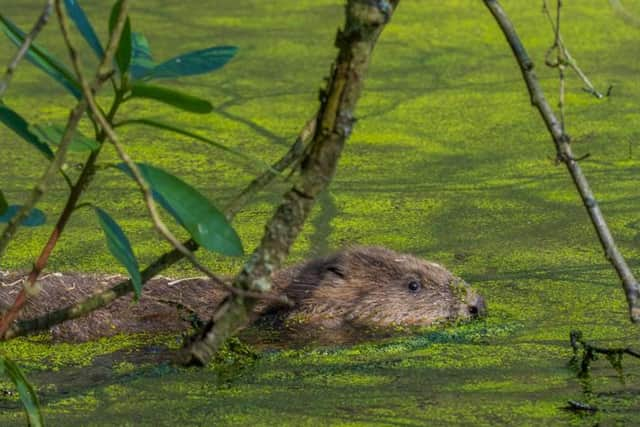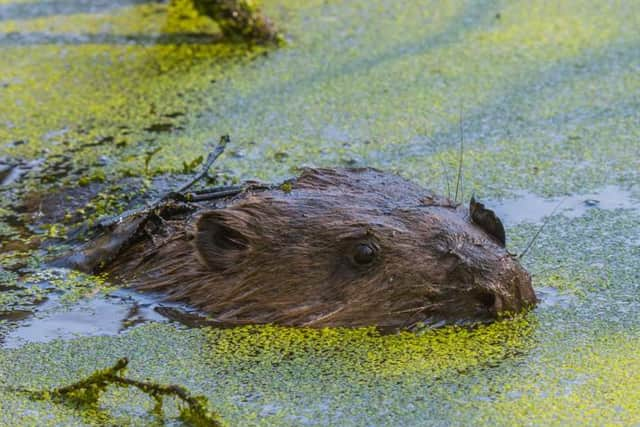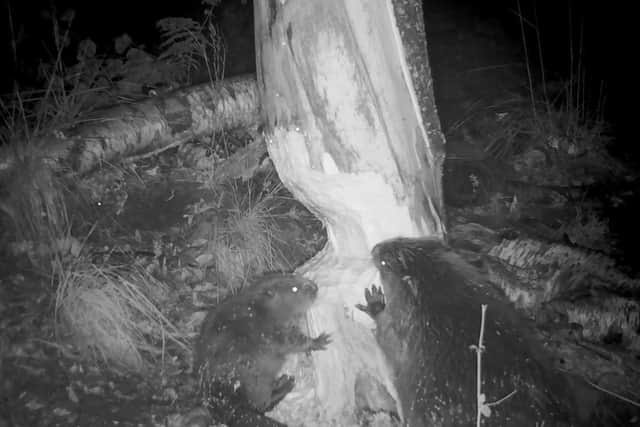VIDEO: Cropton Forest beaver trial welcomes two new additions to the family
and live on Freeview channel 276
The Cropton Forest beaver colony has grown to a family of eight with the birth of two new kits at the end of June.
The kits are the third set of new arrivals since two adult beavers from Scotland were released into an enclosure in Cropton Forest in April 2019 as part of a five-year scientific trial.
Advertisement
Hide AdAdvertisement
Hide AdTrail cameras record the beaver's behaviour and allow ecologists to monitor their health.


The beavers were introduced to the area as a follow on to the 'Slowing the Flow' project to reduce flooding in the area.
The communities downstream from Cropton Forest have suffered severe flooding in the last twenty years, with the most serious flood in 2007 causing approximately £7 million in damage to homes and businesses. The introductions of the beavers is one of a series of measures to reduce this damage.
Man-made dams have already been helping to reduce flooding, however they are are expensive and time-consuming to look after.
Advertisement
Hide AdAdvertisement
Hide AdThe beavers were released into a secure area to maintain the existing dams and create their own. As the first project of its kind, ecologists are excited to see how the beavers interact with man-made structures already in place.


Cath Bashforth, the leading Ecologist for the project, said: "We’ve had a fantastic positive response to the beaver trial so far. Over 40 volunteers have put in roughly 500 hours surveying the site for different species. It will be exciting to see how the site changes over the 5 years and how the beavers interact with the man-made dam features in the beck."
Beavers can completely change their surrounding habitats for the better. They build dams to restrict water flow creating ponds of deep water, coppice trees and shrubs and dig canal systems creating diverse wetlands. These can bring huge benefits to a wide range of plants and wildlife.
As well as benefiting wildlife, beavers help humans by creating large areas of water-retaining wetlands which reduces flooding downstream. They also help to clean water and reduce silt levels.
Advertisement
Hide AdAdvertisement
Hide AdThe beaver release could potentially change the surrounding habitat for the better and alter local biodiversity so local wildlife groups have been on hand to volunteer.


Local Butterfly Conservation member Graham Oliver, who has been volunteering on the trial, said: "I’m thrilled to be a volunteer in the Yorkshire beaver release trial. It will be fascinating to watch beavers in Yorkshire managing their own habitat and to witness the effect they have on local flood control and biodiversity."